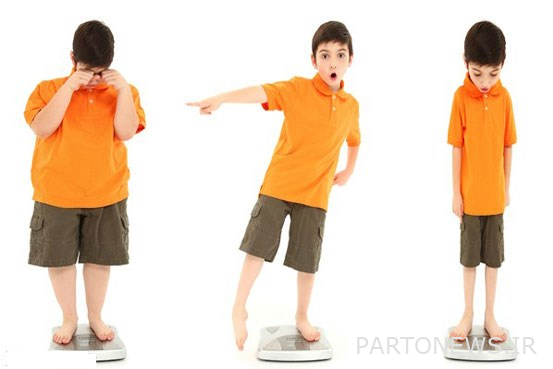My child, do not be ashamed of your body! / How can we avoid paying too much attention to the appearance of children’s bodies?

Family group: For many years, the West has been widely promoting the ideal body through cyberspace, movies, series, and animations, as well as high financial gains in clothing, medicine, and surgery on the hands of developing countries. Has been developed. Iran is no exception and people spend huge amounts of money every year on cosmetic procedures for different parts of their body.
But this dissatisfaction with appearance is not limited to men and women, many parents pass these thoughts on to their children, it is true that having a healthy body and a healthy mind in a healthy body should be nourished with the right food. But many are desperately looking for fashion and slimming.
Today, we see that many families include their children in the treatment regimen from childhood so that they do not become obese in the future, while this thinking is wrong and has many consequences, including children’s dissatisfaction with their bodies as well as lack of nutrients. To have them in the body.
Many of us may have experienced in life the feeling of being ashamed of our bodies, why am I so thin or why am I fat? Why my waist is not thin, why my skin is this color and a thousand other reasons that if you attend a party, you will find many subjects for obesity and thinness of people and their talking. Eventually you will see many people who are dissatisfied with themselves or, if they do not talk about obesity and thinness, talk about the shape of their nose or other organs, which end up under the razor blade at a huge cost!
Leaving aside the society, the propaganda of today’s world, especially from the West and cyberspace, which have a great effect on people being ashamed of their bodies, and sometimes parents themselves send messages to their children that are rooted in this shame. In this report, we try to teach you how to teach your child to like his appearance. However, the first point is that you have this feeling yourself and then you can pass it on to your child.
** Do not compare
Body size, body structure, height, weight, appetite, ossification, and thousands of other physical characteristics vary in children. That you, as a mother, keep saying, for example, ““Your cousin was 10 kilos when she was that age, but why are you 8 kilos?” Or tell others that you are very worried and are constantly trying to feed your child!
The right mindset is to say Your daughter or son pediatrician has assessed his weight and height as normal for me and his father, so I only feed him when my child needs food.
** You do not set the standards
Standards should only be recommended by your pediatrician. Internet content, what others say, and personal taste are not the right criteria for assessing your child’s body.
Your anxiety causes you to constantly try to control your child’s nutrition because of the standard in your mind, and inadvertently convey to your child the feeling that his body needs to change during development, and this is the beginning of a sense of shame.
Most of the time, when children grow up, they look for changes in their appearance and constantly have problems during their surgeries.

** Be sensitive to the type of child description
These descriptions can come from you or others. “Especially from the age of two” it is better to use more descriptions of abilities instead of descriptions of appearance.
For example, instead of constantly saying: “How plump or round or beautiful my son Mashala is” or “Mashala’s whole body is mantle” Say instead: “What a talented boy I have” or “What a kind boy I have” All of this is etched in your child’s mind and determines his or her future mentalities about what to value and prioritize, ostensibly or his or her talents and abilities!
** The first priority is health and then beauty
Remember to mention health, not beauty, when talking to your child about the purpose of exercise or diet, especially if your child needs to lose or gain weight as directed by a doctor.
For example, say that “From now on, eat fruit snacks to show our body how much we love it and want to keep it healthy.” But let’s not say that “Do not eat chips and ice cream to become beautiful or lose weight”. In this case, the message is conveyed to the child that obesity is equal to ugliness, and this is the beginning of shame in him that if he was obese in adulthood, it is ugly and unlovable. Now he has to think that he can lose weight in any way possible, even if it is a big risk.

** Be a good role model for your child
Do not be ashamed of your body, many of us may need to have a better diet or exercise more, but if we are ashamed of our body, how can we be a good role model for our child?
For example, in the mother’s house, she says that A.I ate very sweet iodine, gained weight and became awful. This is a wrong statement. Or he says: Since I lost weight, my skin has become loose or I hate it very much when I look at myself in the mirror, I have become fat or thin!
It is right for a mother or father to say: Because I ate a lot of sweets on Eid, now I eat more vegetables to take care of my health.
** Do not embarrass your child because of his body
The most important and main point of the message that you convey to your child in this regard, whether in the form of a joke or a serious one, is not to embarrass your child because of his body.
“If you continue to eat fire and occupation like this, when you grow up you will become so fat that no one will look at you” or “the girl must be slender and elongated” and “the boy must be stocky and physically fit”.
It is true that whatever your child is, if he needs a diet, do it with health, but do not relate to his beauty and tell him that “You are very beautiful and everyone’s body is different from the others”.

** Be careful about the appearance of others
The way we look at the appearance of others makes assumptions in the child’s mind.
For example “You saw something, it was like a bear!” Or “Why so thin! “He is not beautiful at all” or, for example, “he is as tall as a ladder with thieves”. Or “he hates to look at it so hot.”
Ultimately, our most important duty to our bodies is respect and love. Convey this message to the child through your behavior and words. For example, tell your child that “We eat healthy food because our body is a gift and we have to take care of it.”
“We brush our teeth to show how much we love and care for them.” “When we exercise, our bodies are happier, and because he doesn’t like it, he always sits together.”
End of message /
.

